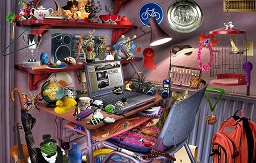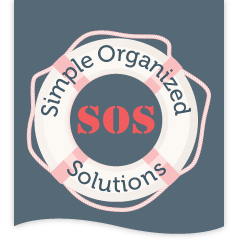 My work in professional organizing extends to clients that are chronically disorganized. I am a member of the Institute for Challenging Disorganization(ICD) and this is where I get the majority of my training. The training I receive not only includes help for chronically disorganized clients, but also for clients in other areas that present challenges with disorganization. Clients that have ADD, physical disabilities, hoarding and seniors, all fall into the category of special needs clients.
My work in professional organizing extends to clients that are chronically disorganized. I am a member of the Institute for Challenging Disorganization(ICD) and this is where I get the majority of my training. The training I receive not only includes help for chronically disorganized clients, but also for clients in other areas that present challenges with disorganization. Clients that have ADD, physical disabilities, hoarding and seniors, all fall into the category of special needs clients.
There are many reasons for disorganization, and from time to time all of us have experienced this feeling. As we go through the stages of life, our situations change which can throw us out of balance and cause disorganization. Typically, once we adapt to the change, we are better able to regroup and get organized. For some though, it’s not that easy to bounce back from a small change or especially a significant life changing event.
The list below shows the four main characteristics of chronic disorganization and explains the meaning of each.
• Longevity of disorganization – The effect of disorganization has been there for a very long time. Maybe even since childhood.
• Negative impact on daily living – Getting to work on time, missed appointments, unable to locate misplaced items for all the clutter, and late charges from not paying bills on time can have a negative impact on daily living.
• Failed attempts to get organized – You’ve read a lot of books, and taken many classes over the years and nothing seems to work.
• Expectation that one will never be organized – You’ve given up hope that your life will ever be organized.
If you can relate to the characteristics of chronic disorganization listed above, and would like more information, visit the ICD website. This website has information and classes available to the public designed to make positive changes in the lives of the chronically disorganized.
Have you experienced failed attempts to get organized? What have you tried that didn’t work?


